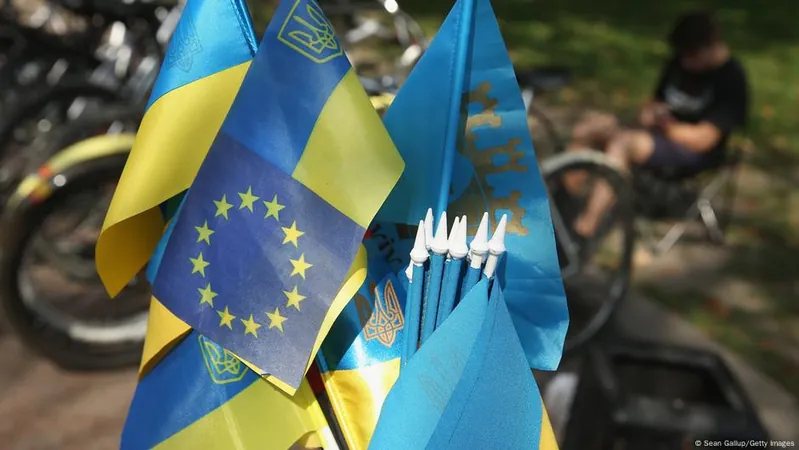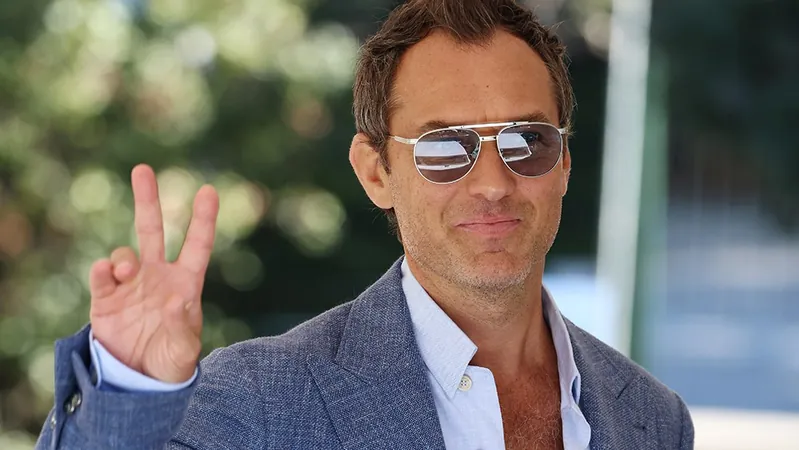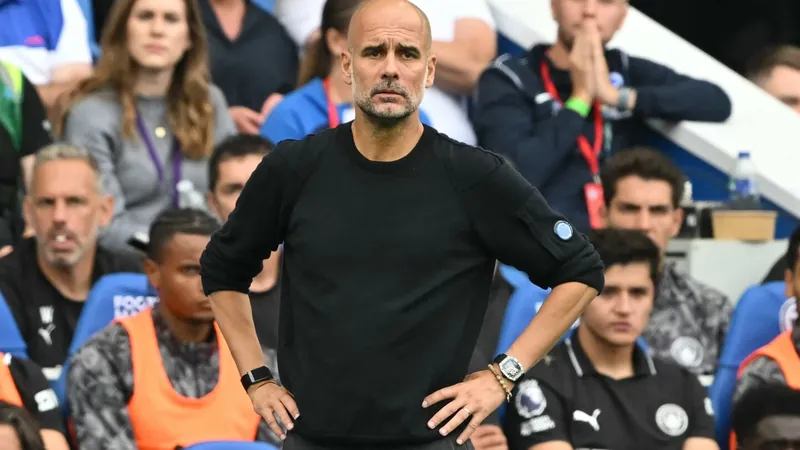
EU's Bold New Strategies to Boost Support for Ukraine Amid Ongoing Conflict
2025-08-31
Author: Ming
As EU foreign ministers gather, their discussions often resemble a global roadmap, addressing worldwide concerns while navigating the complex negotiations needed to reach a consensus among all 27 member states. But twice a year, they convene for informal talks—sessions devoid of official decisions yet rich in valuable discussions that can often get overlooked amid regular business.
This past weekend, the ministers met in Copenhagen for a unique brainstorming session focused on the bloc's next steps in supporting Ukraine as it faces relentless attacks. With Europe's faith in Russia's commitment to peace waning, fresh strategies are essential.
Secondary Sanctions on the Table
One major topic of conversation was the potential implementation of secondary sanctions aimed at Russia’s trading partners. Kaja Kallas, the EU’s chief diplomat, indicated that while some entities, such as certain Chinese banks, have already been sanctioned for their support of Moscow, broader sanctions could prove even more significant. However, this approach carries risks, especially as Europe seeks to strengthen ties with countries like India.
Lithuanian Defense Minister Dovile Sakaliene commented on the issue, emphasizing that only U.S.-imposed secondary sanctions would truly inflict the necessary pain on Russia's war efforts, noting that EU actions are hardly comparable.
Ukrainian Arms Manufacturing on EU Soil
In an unprecedented initiative, Denmark announced plans to invite a Ukrainian arms manufacturer to establish operations in Denmark within weeks. While specific weapons types were not disclosed, Danish Defense Minister Troels Lund Poulsen hinted at further involvement of Ukrainian defense firms across Europe.
This move aims to demonstrate to Russia that, despite its attacks on Ukrainian arms factories, the EU is committed to bolstering Ukraine's defense capabilities.
Frozen Russian Assets: A Heated Debate
Discussions also ignited over approximately €200 billion ($233 billion) in frozen Russian central bank assets within the EU. Currently, EU states have opted to utilize the interest generated from these assets to support Ukraine. However, Baltic states and Poland advocate for the outright seizure of these funds to provide direct assistance to Kyiv.
Belgium has expressed strong opposition, citing legal concerns and potential determent of future investments in Europe. Nevertheless, Kallas argued that the financial markets remained stable after asset freezes, expressing confidence that risks could be managed.
EU Military Training in Ukraine?
There was a broad consensus on moving the EU’s military training mission for Ukrainian troops from Poland and Germany to Ukrainian territory if a ceasefire were to be reached. However, with no truce on the horizon, Kallas noted the complexities of aligning such plans with existing EU rules, especially with Hungary’s frequent hesitations on Ukraine-related decisions.
Proposed Tariffs on Russian Imports
Meanwhile, Finnish Foreign Minister Elina Valtonen proposed instituting a comprehensive tariff scheme not only against Russian products but also on secondary imports entering the EU. Although the EU has prohibited several Russian exports, Valtonen believes raising tariffs on legal imports would further hinder Russia’s economy.
Cautious Optimism
While few within the EU believe these measures will drastically alter the war’s trajectory overnight, critics argue that Europe must move quicker on sensitive topics like banning all Russian fossil fuel imports. Analyst Christine Nissen underscored the importance of maintaining European unity in addressing this pivotal conflict, which significantly impacts both Ukraine's and Europe’s futures.



 Brasil (PT)
Brasil (PT)
 Canada (EN)
Canada (EN)
 Chile (ES)
Chile (ES)
 Česko (CS)
Česko (CS)
 대한민국 (KO)
대한민국 (KO)
 España (ES)
España (ES)
 France (FR)
France (FR)
 Hong Kong (EN)
Hong Kong (EN)
 Italia (IT)
Italia (IT)
 日本 (JA)
日本 (JA)
 Magyarország (HU)
Magyarország (HU)
 Norge (NO)
Norge (NO)
 Polska (PL)
Polska (PL)
 Schweiz (DE)
Schweiz (DE)
 Singapore (EN)
Singapore (EN)
 Sverige (SV)
Sverige (SV)
 Suomi (FI)
Suomi (FI)
 Türkiye (TR)
Türkiye (TR)
 الإمارات العربية المتحدة (AR)
الإمارات العربية المتحدة (AR)